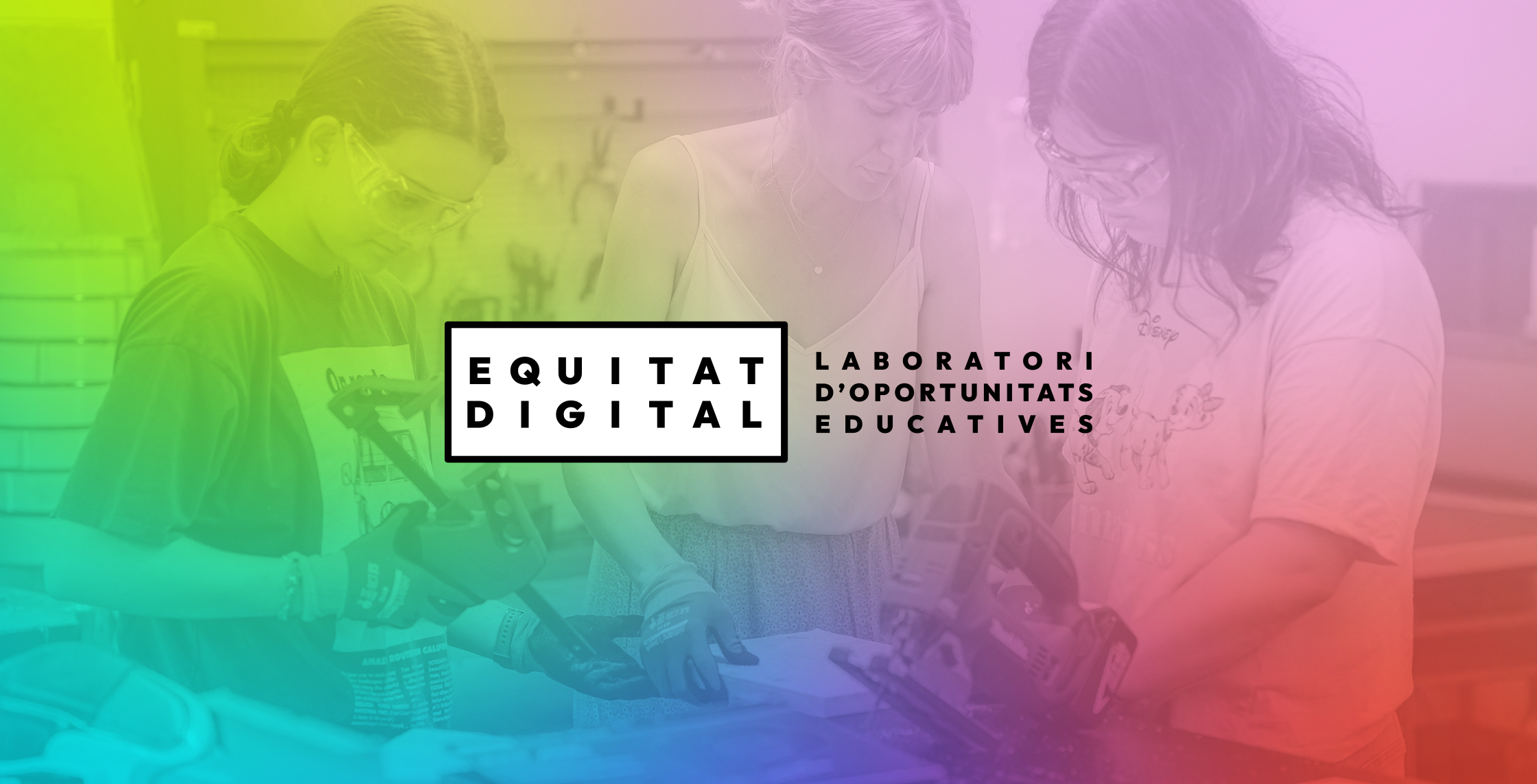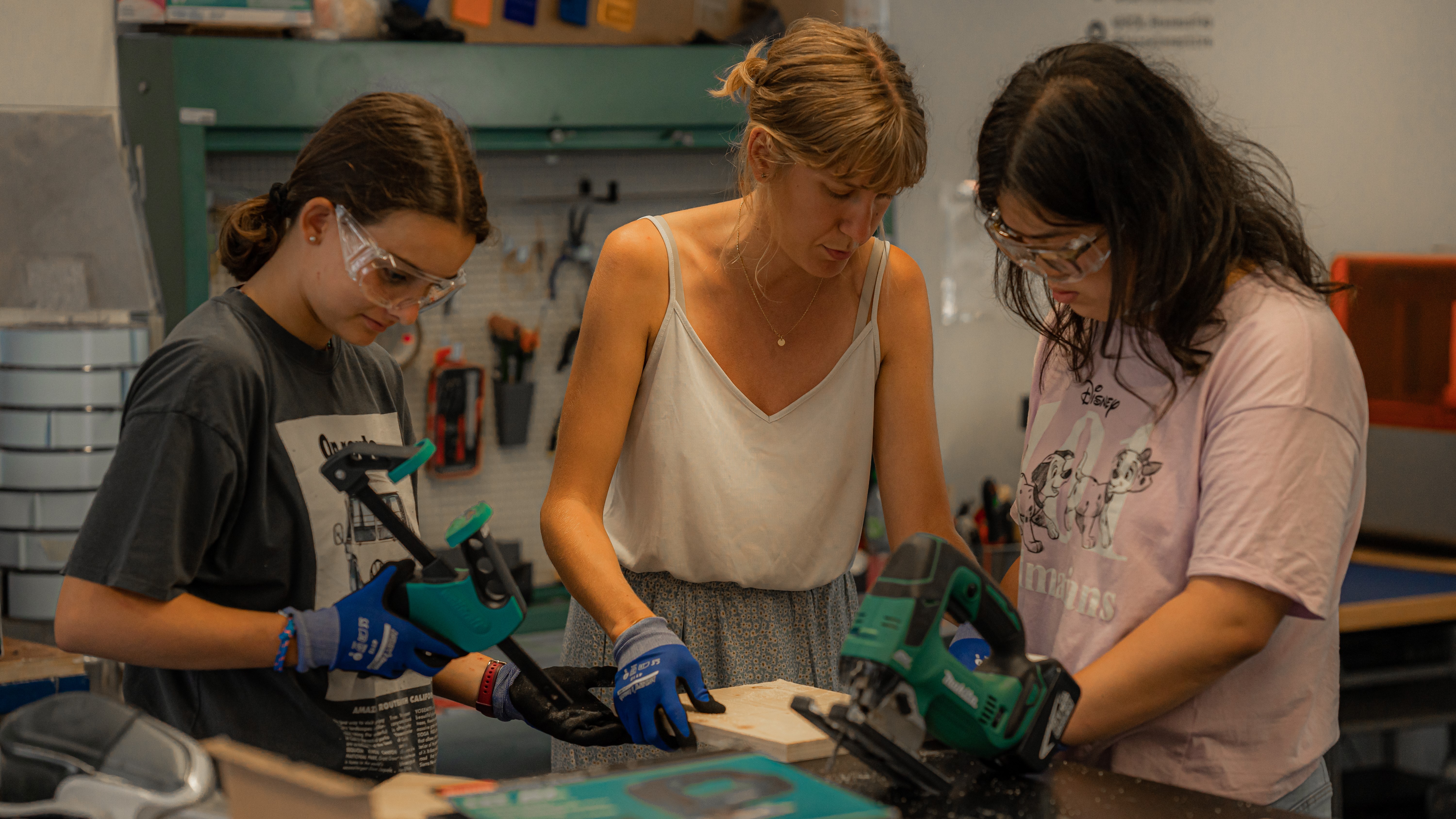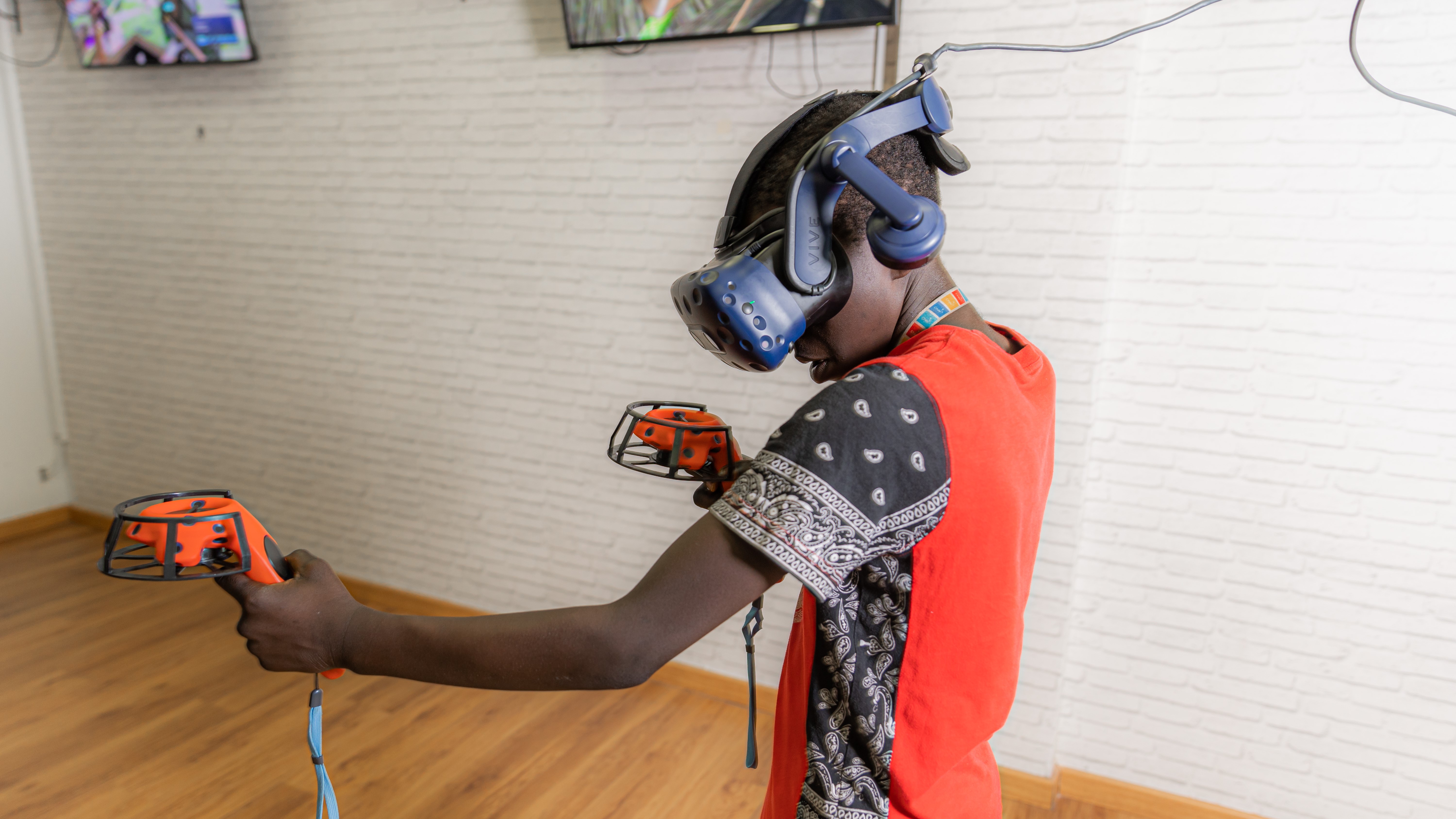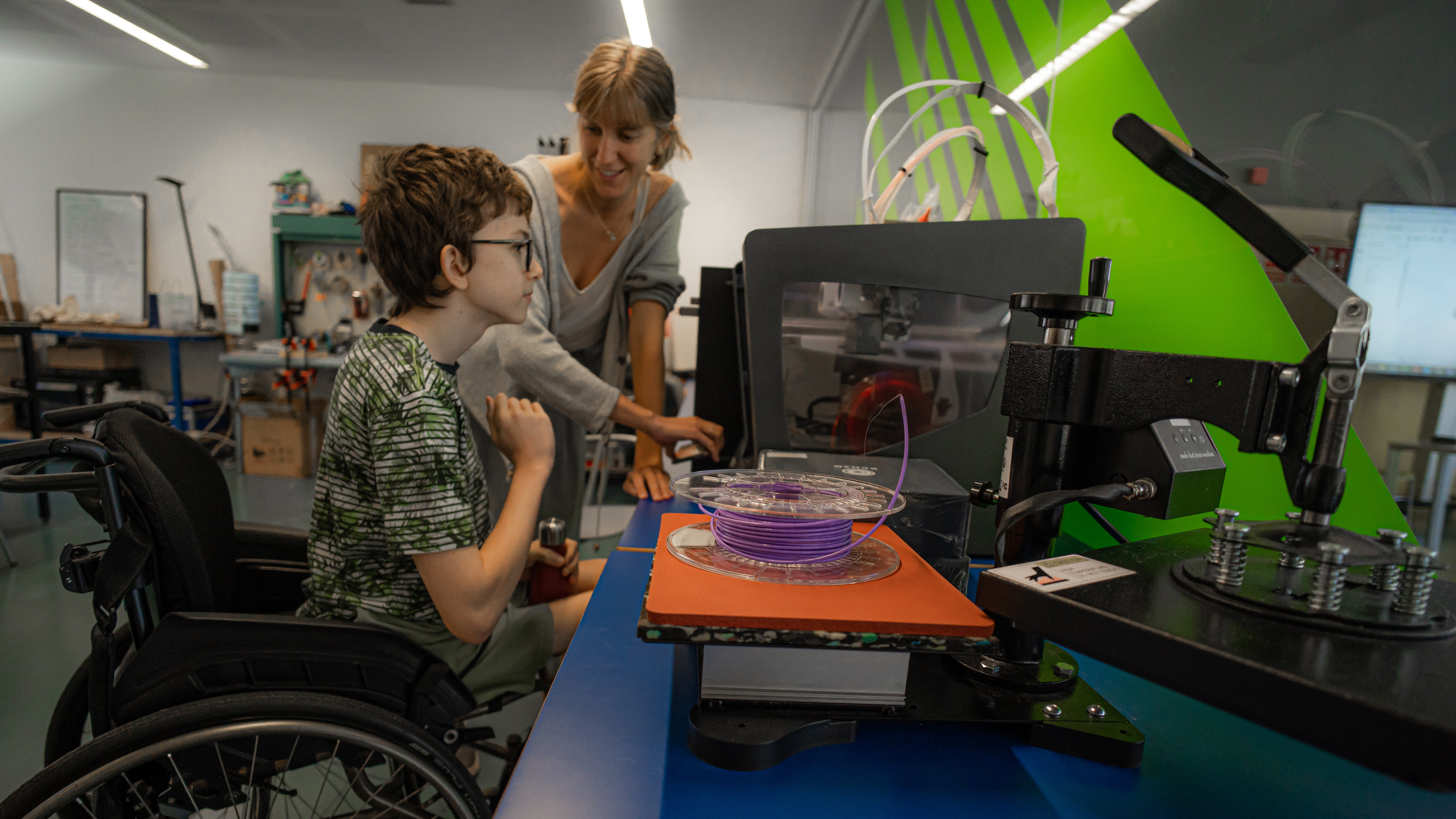The digital revolution is not digital. Three reflections so we can educate the technologies that are already transforming us
06/10/2022

We want an education system with a more digital focus, but also one that is more critical, humane and diverse. One where the strategy of urgency does not hold back necessary discussions surrounding risks. One where resources are allocated where needed the most so technologies can bridge gaps rather than exacerbate them.
Related: Algorithms under scrutiny: Why use AI in education?
Since being back at school in recent days, I have spoken to many teachers and head teachers. People I greatly admire. They are all committed to a standard that transcends the “teaching-learning process” and are true driving forces for generating opportunities for their students and families. And they all have in common their frustration with the digital transformation plans they are required to implement in their schools. Frustration, not so much with the “what” but with the “how”. The common thread is the lack of time to take in the changes imposed on them. A digital transition that is not based on the needs and the informed reflection of education communities; instead, one that has been driven more from the standpoint of urgency rather than aims.
Related: We invite you to form part of the Education Opportunities Laboratory we are setting up!
A digital transition that is not based on the needs and the informed reflection of education communities; instead, one that has been driven more from the standpoint of urgency rather than aims.
I am not mistaken for being conservative or averse to change; quite the opposite. In fact, for several years and from various forums I have been calling for the need to bring in technologies to speed up learning and opportunities, especially where the role of schools is even more essential. For this very reason, I still find it disappointing that such a significant transformation is carried out without space for criticism, without understanding for the teams of teachers and with an absence of equity mechanisms.
Here I wish to share my perspective, without magic recipes but with the determined will to open up new “off-road” pathways.
1. It is true that there is no going back, but we have alternatives
The tidal wave of the pandemic placed every education system under strain all over the world. It became clear that digitally mature and more equitable systems were able to respond more swiftly and fairly to guarantee the educational connection and bridge the digital divide. Moreover, these systems are also recovering from the shock more quickly. In Catalonia, the health crisis also led to the implementation of the Digital Education Plan, with uneven provision of hardware and an instrumental emergency educational offer that sought to quickly bring the education sector up to date after years of neglect and of sheer reactivity to technological changes. Now we have already skipped past this screen and would unlikely be able to go back or even want to.
We are now at a decisive juncture. In the coming months, tenders will be invited for hardware and training which will largely define the digital system that will shape Catalan education over the coming years. At the same time, along the way we are connecting our children, adolescents and young people to technologies that we barely know anything about. We are exposing them to risks that are still difficult to quantify.

Fab Lab at the Technology Park, Barcelona
I believe that this (digital) acceleration is not allowing us enough time to be critical. Time for public decision makers and teachers to gather the necessary knowledge to make informed decisions on educational desirability, privacy and quality. Time to explore what works for us in terms of learning and what does not. Time to find out in which conditions technologies generate new opportunities and in which conditions they generate new inequalities. We are driving at full speed on a major highway (with tolls) when perhaps we shout navigate a network of roads.
We managed as best as we could during Covid, with much suffering and effort from educational agents. Now we deserve spaces where we can think, explore alternatives and have a more active role in the digital transformations each educational community will need to lead in the coming years.
2. It's not you. It’s me
The opportunity is staring us right in the face and we just do not see it. Believing that the object is the solution. Believing that technology will make us better and not acknowledging that the sins of digitalisation are, in reality, human sins. As is the case in education also.
We still expect technologies to solve our problems, to make our lives easier, but maybe we do not expect them to make us better people. In other words, we want to make digital transformations without transforming ourselves. We thereby place the burden of outcomes, and the resulting assessment, on the tools. We say that artificial intelligence is biased (but it is actually the humans who designed the algorithm who are biased). We say that platforms spy on us (yet it is we humans who package the data and sell it). We say that the tools for cooperation and participation do not work (but it is us who are lacking in rich, well-trained cultures of participation).
The promise was that the Internet would grace us with unlimited free access to knowledge, therefore providing us with a more equitable and cohesive society. In short, wiht a better world. Admittedly, this was partly true. But partly only. We have observed that having access to information does not equate to the ability to learn, let alone that this learning results in a fairer society.

Azahara Association, Salt
Very few of us today would want to go back to a world without the Internet. However, we see inequalities gathering pace, discourse becoming polarised, democracies becoming more fragile, and a constant feeling of disaster. Can we state that technologies are to blame for these problems?
I think not. Improper use, misconduct and lack of knowledge are the perfect breeding ground for technologies to nurture undesirable harmful effects. In education, where we are devoted to caring for and supporting our most valuable members of society, we cannot afford to rely on the tool to solve our misfortunes/mess.
Capitalising on these years of technological changes in schools and organisations is vital in order to devise a better education. To build discourses and realities of optimism and hope. A hope modelled on Marina Garcés, always committed and campaigning. It is necessary to understand technologies to question them. To use them for the benefit of teaching; for the actual needs of professionals. To guarantee that digitalisation will be a driving force for opportunities, especially for those who need them most. In short, technologies need to be educated!

Fab Lab at the Technology Park, Barcelona
3. Digital equity: beyond the “divide”
I very recently made a contribution where I listed the three digital divides that also impact educational realities. But today, I want us to go even further.
Let us begin to talk about digital equity, understood in a broader, more inclusive and exploratory way.
Guaranteeing connectivity and hardware, and certifying teachers’ digital literacy, is a necessary condition, but it falls short and can even be counterproductive.
As we have already discussed, guaranteeing connectivity and hardware, and certifying teachers’ digital literacy, is a necessary condition, but it falls short and can even be counterproductive unless resources and energies are allocated wisely. Some examples include:
- Setting homework to do at home over a platform can generate frustration and inequalities in learning unless we deliver support and assistance for families. Indeed, it can entail educational depletion depending on how the activity is approached.
- Carrying out educational activities using technologies and not addressing how participants interact and shape their identities can have a greater impact on inequalities linked to gender, ethnicity or social background.
- Allowing artificial intelligence systems to recommend learning content to students can be interesting in customising their experience. However, it can also carry risks, such as attachment of labels, discrimination and even learning depletion.
- We are calling for the closing of the digital divide, and at the same time, we know that more and more study programme leaders and voices are warning us about the neurological risks of overexposure to screens.
Beyond the out-of-context Anglo-Saxon references, no doubt we can envision ourselves in some of these circumstances. To talk about digital equity is tantamount to talking about these day-to-day issues, avoiding black and white. It involves going beyond dichotomous debates to bring to the surface uncertain, controversial issues, but ones which are indeed essential and call for our commitment. A commitment from every single one of us!
We want to explore and learn with you, and shine a light in the shadows. We want to share the path of digital equity to progress with drive and curiosity, but also with the care and responsibility that we must require of ourselves.
Will you join us?
Please send us your thoughts, experiences, ideas or proposals at the following email address: equitat.digital@fbofill.cat.
We will also see your comments on social media if you use the hashtag #EquitatDigital